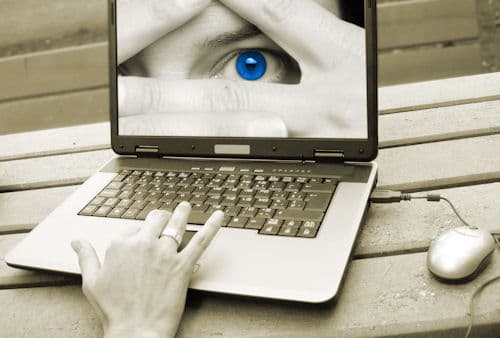Recent research has shown that ADHD behaviors may actually be a result of vision problems.
If your child is fidgety, hyperactive, or distressed by his schoolwork, you may think that a diagnosis of ADHD is obvious.
In the last 15 years, many clinical trials have been conducted on this topic. The research has proven that certain vision problems can actually affect your child in the same way as an attention deficit disorder.
In some cases, children are misdiagnosed with ADHD, and are given medication to control their symptoms. However, since the diagnosis was incorrect, the medication does not solve the problem, and the vision problems are left untreated — leaving the parents and child confused and frustrated.
A recent study published by the University of Alabama (2016) found that children with vision problems are two times more likely to be diagnosed with ADHD than their peers!
This suggests that problems with vision can cause a child to feel distressed by his schoolwork, and result in hyperactive or restless behavior.
Some researchers think that vision problems affect “executive function”— the higher-order cognitive processes used to plan, pay attention, and organize time and space.
According to the American Association of Pediatric Ophthalmology and Strabismus (2013), a specific vision problem was 30 percent worse in children with ADHD, compared to children without an attention disorder.
Research conducted in the University of California (2005) shows that children with ADHD are three times more likely to have a vision problem than their fellow classmates.
Contact a vision therapy eye doctor near you if your child is showing signs of ADHD, as a vision problem may be causing these behaviors.
SEE RELATED: Can Vision Problems be Misdiagnosed as ADHD?
ADHD and convergence insufficiency
The most common vision condition that produces symptoms similar to those that present with ADHD is called Convergence Insufficiency (CI).
Convergence of the eyes occurs when the two eyes work as a team to focus on an image and enable clear vision. Convergence insufficiency requires the eyes to work harder to process visual information accurately and enable vision acuity.
Diagnosis and treatment of CI is essential for your child’s success in reading, learning, sports performance, and more.
It is important to note that a child can have perfect 20/20 eyesight, or wear glasses to improve near/distant vision, and still suffer with CI. Therefore, a child that presents with symptoms of ADHD should have his eyes examined to detect any signs of CI.
According to an essential study by Prof David B. Granet, M.D. at UCLA of California in San Diego, there is a “three times greater incidence of ADHD among patients with CI, when compared with the incidence of ADHD in the general U.S. population”.
How do I know if my child has CI?
Many signs of CI are similar to signs of ADHD:
- Reduced attention
- Disrupting classmates or daydreaming
- Reading below grade level
- Performing poorly on tests, despite knowing the material
- Spending a lot of time homework and assignments
- Losing the place while reading, or skipping words/lines
- Making frequent mistakes on assignments due to fatigue or anxiety
- Covering or closing one eye when reading
- Blurry or double vision
- Headaches
According to Prof. David B. Granet, M.D. at UCLA of California, if a child is diagnosed with ADHD, he should be evaluated by an eye doctor to detect signs of CI — which may be the root of the problem.
If convergence insufficiency is diagnosed, a vision therapy program will usually be recommended. Vision therapy focuses on training the eyes to work together to enable clear binocular vision. It is typically designed and monitored by a developmental optometrist (OD) or a vision therapist, who works under an OD’s supervision.
Both CI and ADHD require treatment: Associate Professor of Ophthalmology, Dawn DeCarlo, O.D. at the University of Alabama states, “It is important for parents to realize that children with vision problems may also have attention issues, both of these conditions require diagnosis and treatment.”
How can I help my child?
If your child is showing any of the signs above, schedule a functional vision assessment to determine whether your child is truly presenting with signs of ADHD, or suffering from a vision condition.
LEARN MORE: Vision Therapy for ADHD
References:
Decarlo, Dawn K., et al. “ADHD and Vision Problems in the National Survey of Children’s Health.” Optometry and Vision Science, vol. 93, no. 5, 2016, pp. 459–465.
Fabian ID, Kinori M, Ancri O, Spierer A, Tsinman A, Ben Simon GJ. “The possible association of attention deficit hyperactivity disorder with undiagnosed refractive errors”. J AAPOS. 2013 Oct;17(5):507-11.
Granet DB1, Gomi CF, Ventura R, Miller-Scholte A. “The relationship between convergence insufficiency and ADHD.” Strabismus. 2005 Dec;13(4):163-8.









